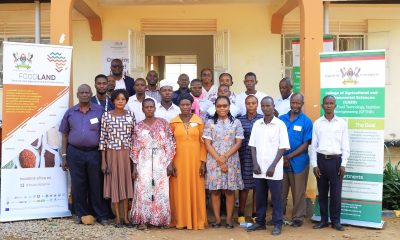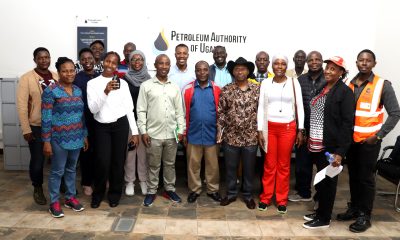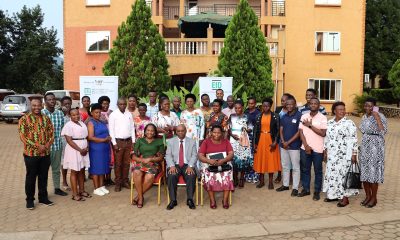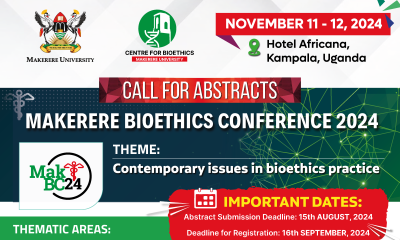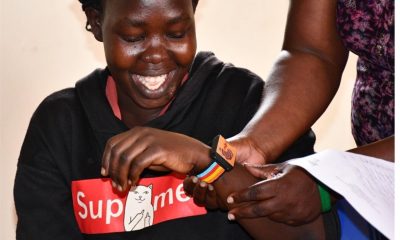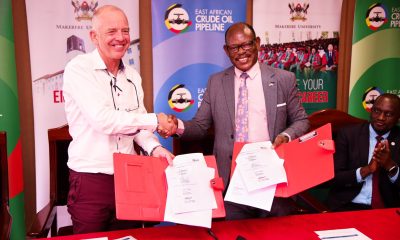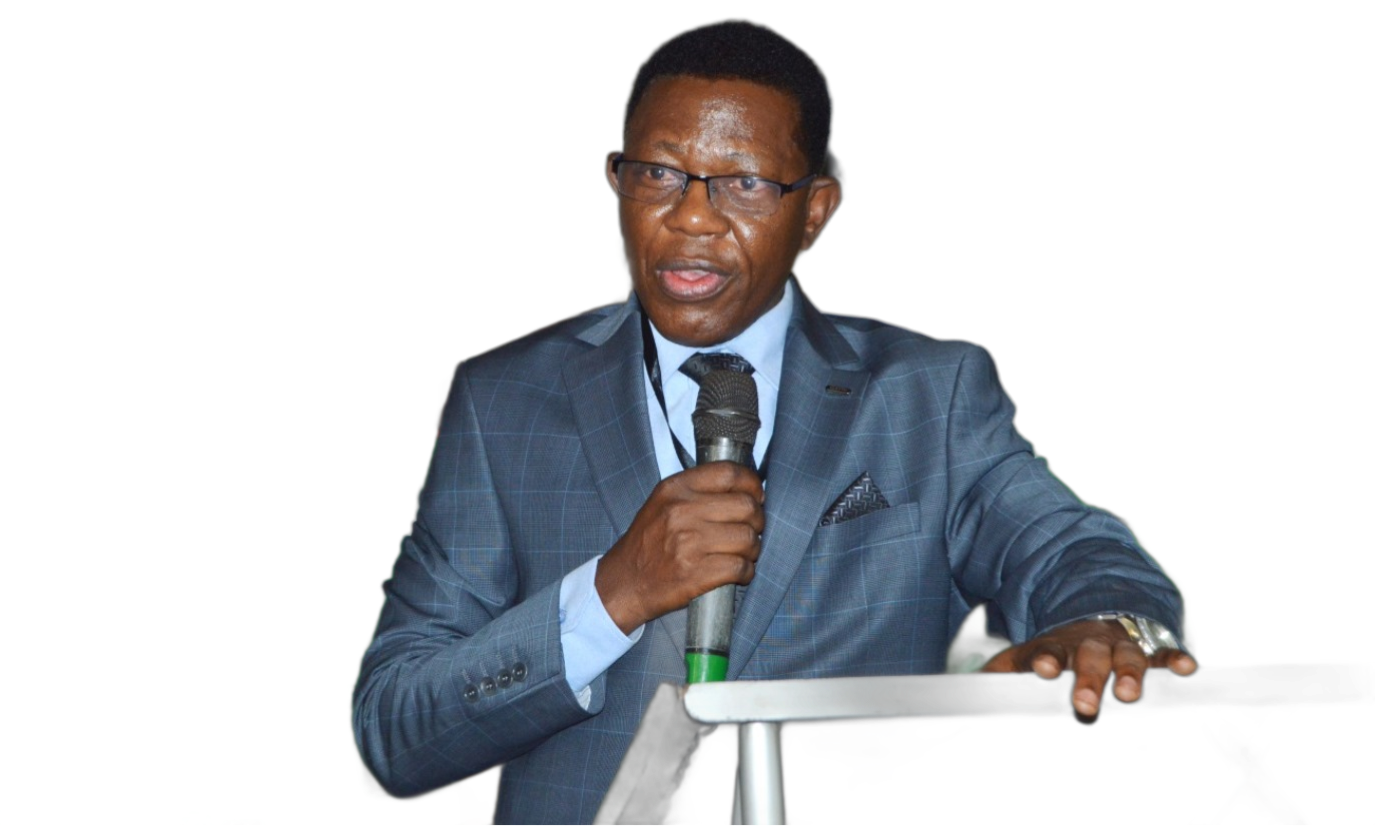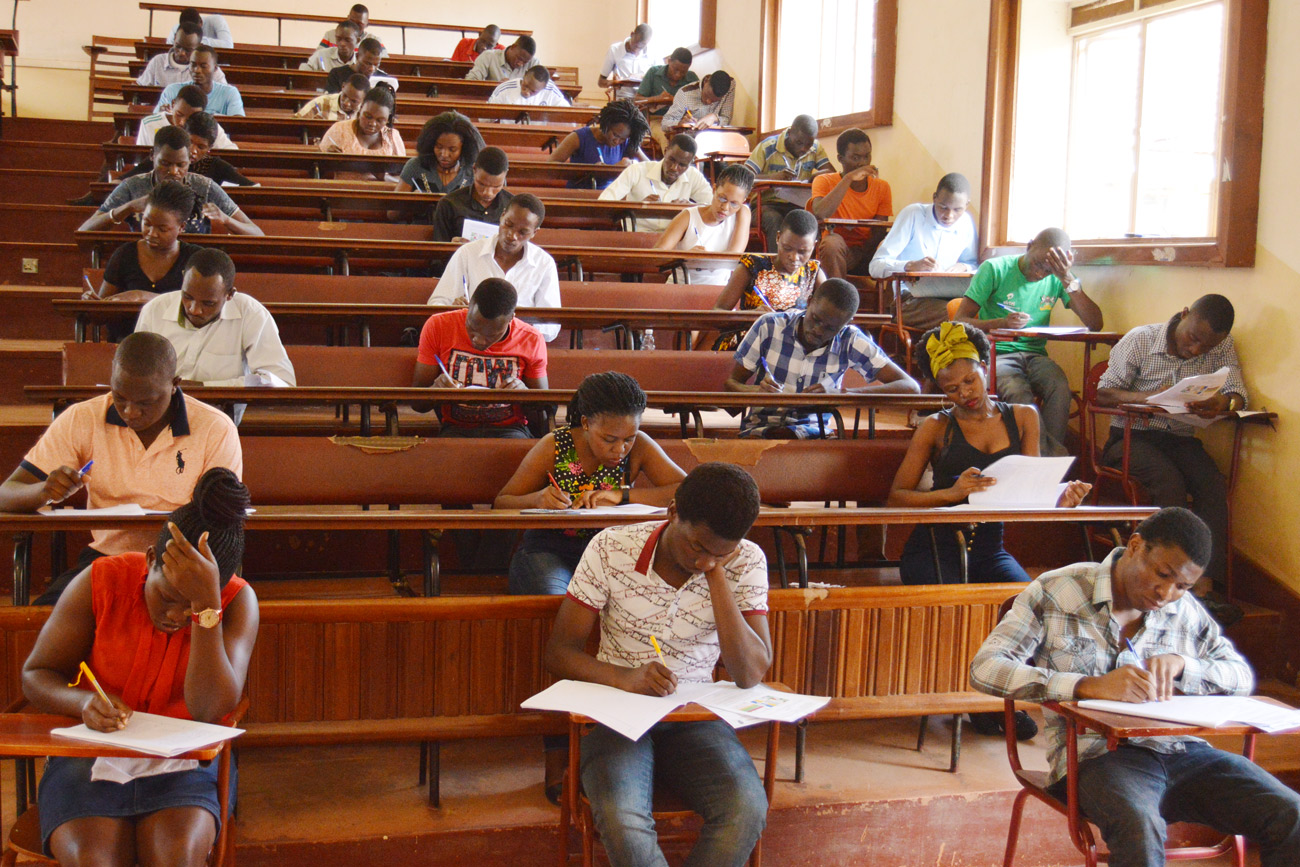“The African Institute for Capacity Development (AICAD) has been selected to host the Africa Open Science Platform (AOSP) Node for the Eastern Africa region. This is a key milestone aimed at advancing scientific research and data sharing on the African continent,” said the Vice Chancellor, Prof. Barnabas Nawangwe during a press conference held on Wednesday 12th July 2023.
The Vice Chancellor who was joined by Dr. Gaston Ampe Tumuhimbise, the Country Director, AICAD Uganda Office informed journalists gathered in the Council Room, Frank Kalimuzo Central Teaching Facility, Makerere University that AICAD will host AOSP node for a period of five years effective June 2023.
The Press Release follows below:
PRESS RELEASE: AICAD SELECTED TO HOST AFRICA OPEN SCIENCE PLATFORM (AOSP) NODE FOR EASTERN AFRICA REGION
After a very rigorous and competitive process, the National Research Foundation (NRF) of South Africa has selected the African Institute for Capacity Development (AICAD) as a regional node for the African Open Science Platform (AOSP) taking charge of the East African region node. AICAD is a regional organization charged with linking university generated technologies to the communities to fight poverty with headquarters at Jomo Kenyata University of Agriculture and Technology. AICAD has country offices located at Makerere University in Uganda, Sokoine University of Agriculture in Tanzania and Egerton University in Kenya.
The other two award winners in Africa include; the Egyptian National Authority for Remote Sensing and Space Sciences (NARSS) for the Northern African Node based in Egypt and the UbuntuNet Alliance for the Southern Africa Node based in Malawi. The appointment will be for a five-year term, starting in June 2023, with additional regional nodes to be appointed to cover all regions of the continent.
Hosted by the National Research Foundation (NRF) since 2020, the AOSP aims to position African scientists at the cutting edge of data intensive science by stimulating interactivity and creating opportunity through the development of efficiencies of scale, building critical mass through shared capacities, and amplifying impact through a commonality of purpose and voice. This prominent initiative is supported by the South African Department of Science and Innovation, the International Science Council, CODATA, the Academy of Science of South Africa, and other prominent regional networks. The AOSP will also leverage international networks and developments, and the momentum towards operationalization of the international framework for open science.
The Vice Chancellor of Makerere University, Prof. Barnabas Nawangwe congratulates AICAD on being appointed to coordinate this noble initiative in East Africa. Makerere University welcomes every initiative and programme that harnesses the power of research to transform lives and societies. AICAD through this Africa Open Science Platform (AOSP) will enhance the ongoing efforts of ensuring that research, science and data contributes to reduction of poverty in the African region.
“The Makerere University Strategic Plan stipulates the re-positioning of Makerere University into a research led university. This is premised on the fact that no country can develop without research. The main goal of AICAD is fighting poverty using university generated innovations. I am happy to note that the National Research Foundation (NRF) of South Africa has appointed AICAD as a regional node for the African Open Science Platform (AOSP) taking charge of the East African region node. With this appointment, Makerere University is ready to work with AICAD to coordinate all member universities and other research data generating agencies to pursue the ideas of open science. The idea of open science and data sharing is key in the innovation process. When data is shared, solutions are quickly realized. I understand this is how the COVID-19 vaccine was quickly produced. Different research groups were able to share their data for a common cause,” remarked Prof. Nawangwe.
The role of the African Open Science Platform (AOSP) regional nodes will be to coordinate, create linkages, support, and promote efforts aligned with implementation of Open Science programmes at a regional level, strengthen knowledge networks and infrastructure access, and enhance cooperation between regions and globally in support of the AOSP’s vision. Among others, regional nodes will be expected to lead on programme delivery and implementation, coordination, capacity building, societal engagement in dialogue, and policy support and promotion of the UNESCO Open Science Recommendations at national and regional levels.
The incoming Director of the AOSP, Dr. Tshiamo Motsegwa, had this to say: “For the Global South, and the African continent specifically, the efficiency and productivity gains from Open Science present a compelling case for government research funding in the context of limited resources and competing priorities for the development of a facilitative and truly African-wide Open Science Diplomacy platform for enhancing continental coordination, collaboration and making global linkages – this to develop an African science system fit for purpose”.
About AICAD
AICAD Uganda Country office was established in 2000 located at Makerere University and headed by a Country Director. AICAD’s headquarters are located in Nairobi, Kenya. This office is responsible for coordinating the institute’s programs and activities dealing with poverty reduction in Uganda through human capacity development by linking knowledge to application. Initially, AICAD was funded through JICA but since 2012, the Institute’s programs are funded by the three governments of Uganda, Kenya and Tanzania. AICAD’s primary aim is poverty alleviation, by facilitating the local people to solve their problems. To do this, AICAD works with public Universities and other institutions to filter and apply those aspects of research that are of practical significance to targeted users. These include public universities such as Makerere, Kyambogo, Mbarara, Gulu, Busitema, Kabale, Muni and KIU. As part of its human capacity development, AICAD’s network has played useful roles in supporting young institutions, individual researchers (through graduate student’s research) and communities.
Follow this story on https://www.nrf.ac.za/the-african-open-science-platform-appoints-three-regional-nodes/
Summary of Matters Arising from the Question and Answer Session
Concept of Open Science
Public Higher Education Institutions such as Makerere and agencies such as the National Agricultural Research Organisation are publicly funded by taxpayers. As such they have a duty to account for the funding they receive to carry out research by sharing their findings. Open Science creates a space where the sharing of these findings can happen beyond forums where scientists and researchers only talk to each other. These findings are availed in simplified formats that can be accessed by innovators and entrepreneurs who may not have the capacity to undertake expensive research, to create goods and services for the benefit of the country.
The AOSP will enable data generated in Uganda as well as the Eastern Africa to be freely shared with the public for their use as well as journalists for further dissemination. The founding of AICAD in 1993 implicitly complied with the principles of open science. AICAD was founded in 1993 principally to reduce poverty through scientific research and sharing this knowledge with the community. Joint sharing of knowledge at international level in line with open science is one of the factors that led to the rapid development of the COVID-19 vaccine as well as curbing outbreaks of diseases such as ebola, nodding disease.
Makerere has actively participated in some of these initiatives and will strive to work on making others such the Parish Development Model (PDM) work for Uganda’s poverty alleviation agenda through the PDM lab. Additional undertakings in line with open science have seen Makerere develop and disseminate new crop varieties to farmers to improve productivity.
Implementation of the AOSP
AICAD’s selection to host the Eastern Africa node was boosted by its proficiency in supporting a network of universities and institutions to reach communities with knowledge and technologies that are geared towards poverty reduction. AOSP will enable AICAD to scale up and improve these efforts. Makerere is making efforts to commercialise its innovations and where necessary, forging partnerships with various entities to undertake manufacturing, as is the case with Alfasan Uganda Limited for production of the anti-tick vaccine. Other initiatives include the partnership with UNDP Uganda to set up the Makerere Innovations Hub.
Funding
The NRF will initially fund the AOSP node for Eastern Africa. In order to ensure its future sustainability, the platform will have the capacity to raise funds from other sources .
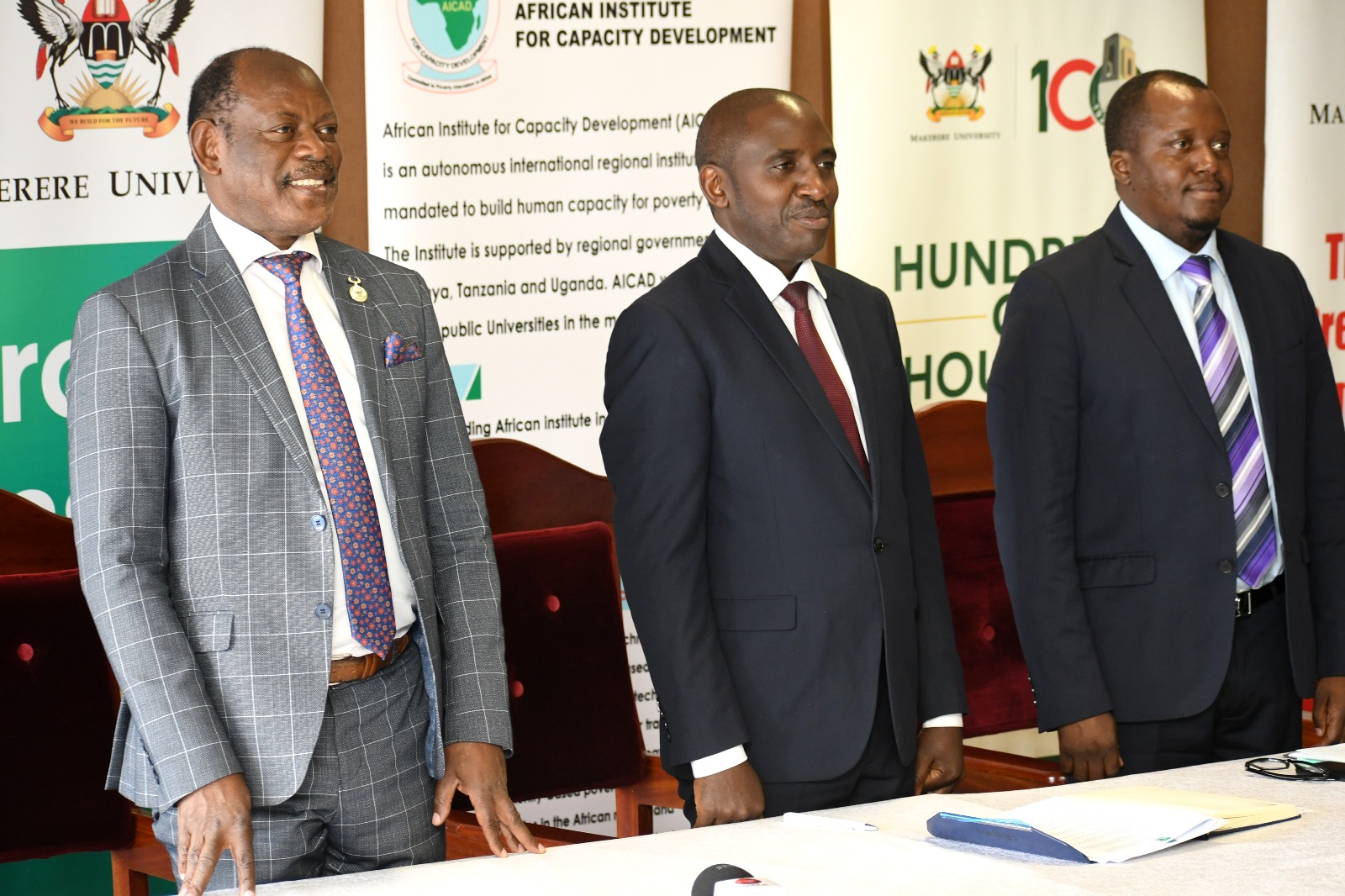
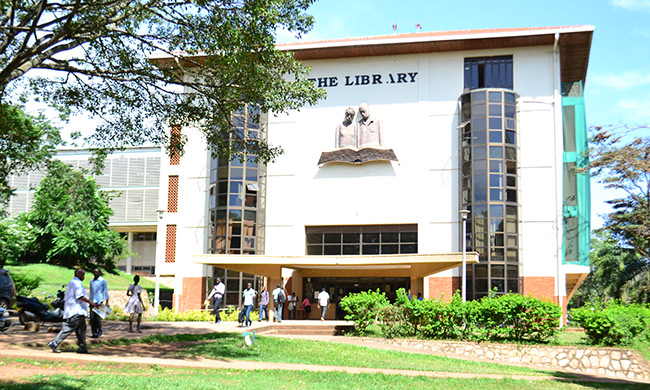
 General1 week ago
General1 week ago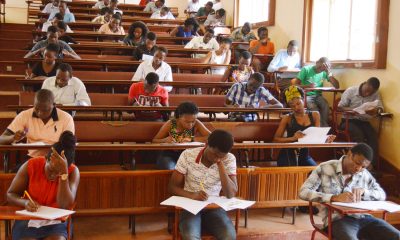
 General1 week ago
General1 week ago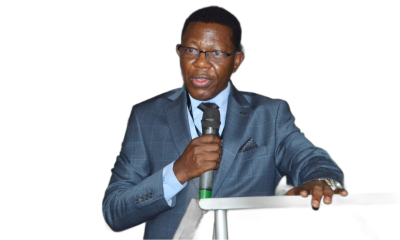
 General5 days ago
General5 days ago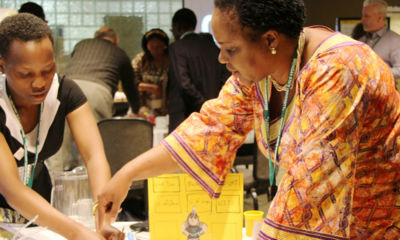
 General2 weeks ago
General2 weeks ago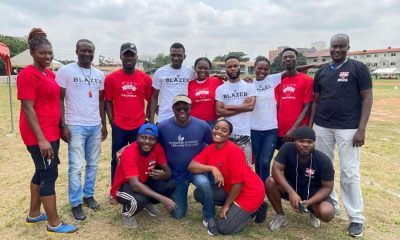
 General2 weeks ago
General2 weeks ago
